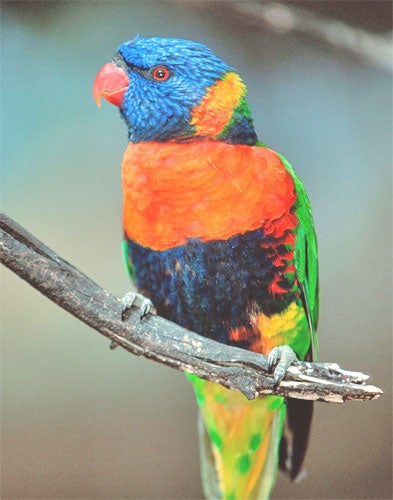Out of their tree: virus blamed as drunken parrots fall from sky

Your support helps us to tell the story
From reproductive rights to climate change to Big Tech, The Independent is on the ground when the story is developing. Whether it's investigating the financials of Elon Musk's pro-Trump PAC or producing our latest documentary, 'The A Word', which shines a light on the American women fighting for reproductive rights, we know how important it is to parse out the facts from the messaging.
At such a critical moment in US history, we need reporters on the ground. Your donation allows us to keep sending journalists to speak to both sides of the story.
The Independent is trusted by Americans across the entire political spectrum. And unlike many other quality news outlets, we choose not to lock Americans out of our reporting and analysis with paywalls. We believe quality journalism should be available to everyone, paid for by those who can afford it.
Your support makes all the difference.The staggering gait, the mood swings and the headaches will be familiar to anyone who has indulged in a big night out. But in Australia's northernmost city it is not the people who are behaving like drunks, but the native parrots, which are falling out of the sky.
Darwin's red-collared lorrikeets are suffering from a puzzling condition, with symptoms strikingly similar to those that accompany inebriation. Hundreds have been treated in animal hospitals, where they are fed sweetened porridge and fresh fruit – the avian equivalent of a hangover cure.
In recent weeks the brightly coloured birds have been observed falling out of trees, stumbling around the streets and crash-landing when they attempt to fly. Those recovering in hospital are said to be dishevelled, disoriented and grumpy. Above all, they seem to shun bright lights and to experience an overwhelming desire for a good lie-down.
"They sit on the floor of the cage and rest their heads on the side," said Lisa Hansen, a veterinary surgeon at the Ark Animal Hospital in Palmerston, near Darwin. "Or they curl up in the corner and hide under the paper and block the rest of the world out."
Ms Hansen said it was unclear what was causing the lorrikeets' unusual behaviour, but theories ranged from a mystery virus to fermented nectar from a plant they may have been eating. The hospital is caring for 30 birds at a time, with eight or so brought in daily after being rescued from lawns and roadsides.
"They stagger around," Ms Hansen said. "They're not as co-ordinated as they would normally be. They fall out of trees. They go to jump and they miss the next perch. [It's] a bit like someone who's had too much to drink, and you see them wandering down the street and they're not quite sure where they are."
The cages, where the lorrikeets are fed "the equivalent of ice cream and cans of Coke", according to Ms Hansen, are like sobering-up shelters. But the hangovers can last months, and some birds never recover.
The Paws animal shelter, south of Darwin, has also been swamped. "Every day people hand in more birds," the wildlife manager, Tess Cooper, told the Northern Territory News. "We can't find anything physically wrong with them, so we believe it might be caused by some sort of a plant toxin they got into their bodies."
Ms Cooper, who is looking after 40 birds at present, added: "They can't fly at all any more. And when they try to take off, they crash-land."
Join our commenting forum
Join thought-provoking conversations, follow other Independent readers and see their replies
Comments